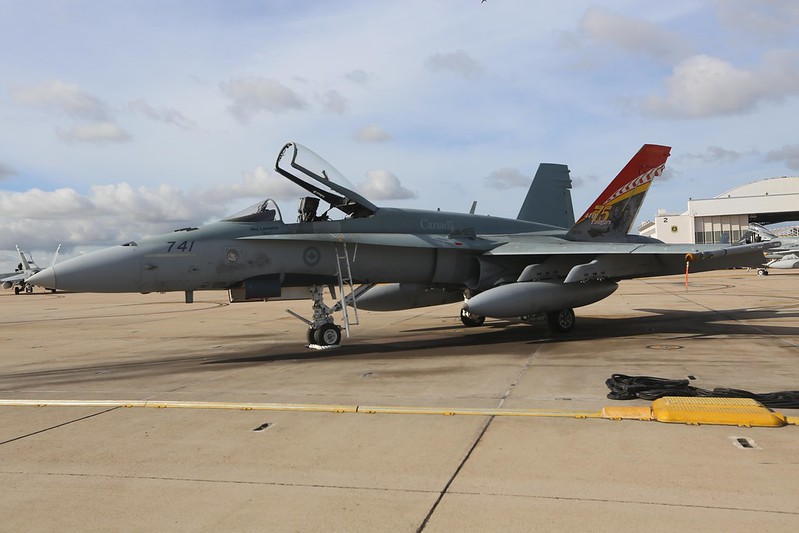It has been a busy year for policymakers and strategic thinkers in Canada. Confronting Russian aggression in Europe, balancing the Chinese and Indian relationships, and isolating the Russian economy has proven to be difficult. Domestic unrest due to supply-chain disruptions and exorbitant energy and fuel cost increases has proven to be equally challenging in many countries. Thus, the release or updating of security policies appears to be timely and welcome. NATO released its Strategic Concept at the Madrid Conference in June; in October, the US published its National Security Strategy. Conversely, Canada is notable for its absence in publishing a similar review. Indeed, Canada has not published a national security policy since 2004, which is now long outdated in the fast-paced world of great power assertiveness, pandemics, and globalized mis- and disinformation.
There are four specific domains that Canada must address in any updated security review. It is important to emphasize that these are developing and developed threats: the negative effects of each are already being experienced in a variety of ways. Canada’s national security review must therefore be pragmatic about what is already occurring, and what resources can be dedicated towards mitigating or eliminating these threats.
Cyber-based Threats
Canadian national security requires taking stock of cyber-based threats, including hacking and ransomware-style attacks and the promotion of mis- and disinformation to undermine democratic legitimacy. While there is a delicate balance between freedom of expression and actively spreading hate or falsehoods, Canadian security is actively buttressed by an informed and educated populace. Once the social consensus deteriorates, Canada will find it difficult to achieve its interests and priorities domestically or internationally. For an example of this, see the Ottawa “Trucker Protest” in February 2022, when the expansion of disinformation co-opted the original protest movement, which then paralyzed Ottawa until the Emergencies Act was invoked. In concert with allies and partners, Canada must upgrade and update its tools for monitoring, exposing, and prosecuting the purveyors of cyber-based threats.
The Indo-Pacific
This is a geographical area of increasing importance to world affairs. The assertiveness of China, the decline of Russia, and the development of India and Southern Asia will present Canada with challenges and opportunities, which will likely require new multilateral responses, if not new multilateral governance architecture altogether. Canada’s current abilities to project military, financial, or political power in this region are limited by a lack of security alliances, naval assets, and economic clout. For instance, Canada’s inability to effect the release of hostages Michael Kovrig and Michael Spavor during the Meng Wanzhou extradition proceedings illustrates limits to Canadian influence on the PRC. Canada’s investment in the Indo-Pacific is growing, but as a Pacific nation itself, Canada should commit to sharing the responsibilities and resources that come from expanded Pacific activity, whether it is regulating trade, establishing security alliances, or managing Arctic transits.
Climate Insecurity
This poses a variety of challenges to Canada, being a “wicked problem” This affects Canada in several ways. First, climate change has direct and immediate effects on the country: it has resulted in greater storms, more frequent and deadly wildfires and floods, droughts, and the degradation or elimination of many primary resources on which the Canadian population depends. Second, climate and food and water insecurities elsewhere generate local political conflict, which in turn prompts refugees and migrants to flee to Canada, similar to the 2015 Syrian migrant crisis. Responding to both of these climate challenges will require a “whole-of-government effort” and involve stakeholders in domestic and international spheres to ensure that Canada can mitigate these damaging effects on human lives and livelihoods.
The US
Although the US has been one of Canada’s staunchest allies for much of its existence, this state of affairs must not be taken for granted. Domestic political unrest and the rise of the “America First” movement may reduce the US’ international presence, and one disinterested in maintaining or upholding its international commitments at that. In 2018, for instance, the Trump Administration labelled Canada a “national security threat” for allegedly dumping Chinese steel and aluminum on the US market – and imposed retaliatory tariffs on Canada in response. Should a similar administration return to power after 2024, Canada and NATO should attempt to diversify their military and economic dependence upon the US by replacing or reproducing much of the capabilities that the US provides at the current time.
The Implications for Canadian National Security
All four of these threats demonstrate that Canada must quickly come to terms with a tenuous and fluid security environment where there are few distinctions between domestic and foreign challenges. Complicating matters, Canada’s traditional allies – the US and UK – are both facing domestic political turmoil within traditional establishments (Brexit, America First). This turmoil introduces an element of uncertainty within any bilateral or multilateral agreement with Canada: does the Brexit or America First ideology incorporate assistance for climate– or international-security-related matters? If not, Canada will need to demonstrate stronger leadership in these areas.
It is worth pointing out that both the US National Security Strategy and NATO’s Strategic Concept define the four areas listed here as strategic environments requiring greater investment in defence, deterrence, and denial to rivals or enemies (indeed, the US identifies its own domestic democracy as potentially vulnerable). Thus, as Canada’s two main global alliances are pressing forward in addressing these threats, Canada must not remain behind. An updated national security policy, clearly articulating how Canada will actively use both public and private institutions and actors to mitigate or manage these threats, will allow the country to identify and protect Canadian interests, direct resources to growing problems, and provide the country with a clear picture on how to safeguard its interests heading into a turbulent century.
Photo: “Royal Canadian Air Force (RCAF) McDonnell Douglas CF-188 ‘Hornet’ – A Canadian Armed Forces CF-18 ‘Hornet’ (official military designation CF-188) (S/N 188741)” by aeroman3, via Creative Commons. Licensed under Public Domain 1.0.
Disclaimer: Any views or opinions expressed in articles are solely those of the authors and do not necessarily represent the views of the NATO Association of Canada.




